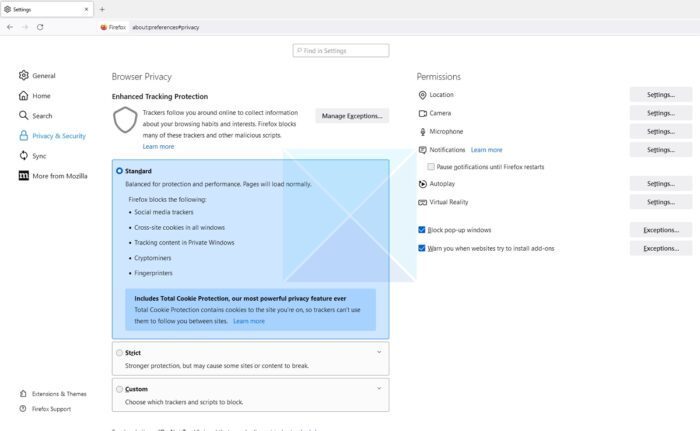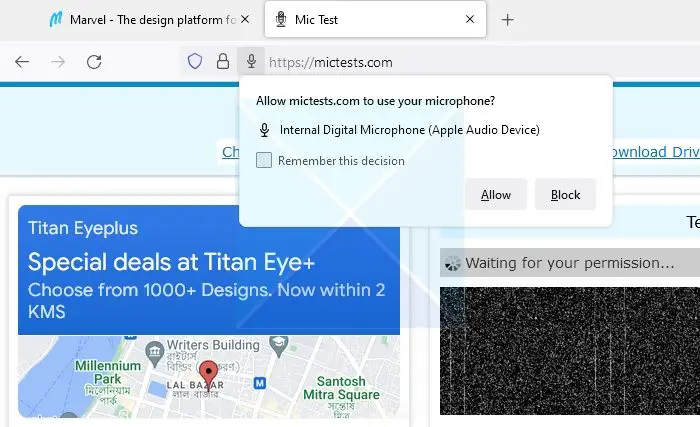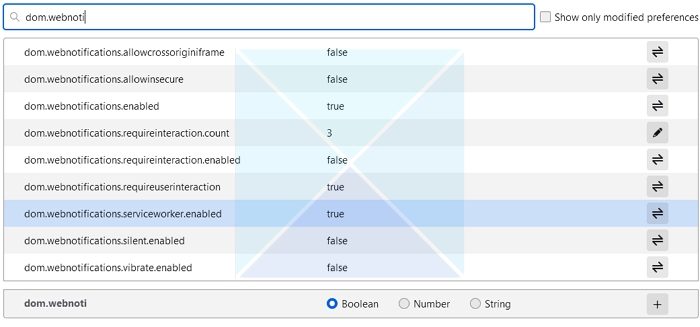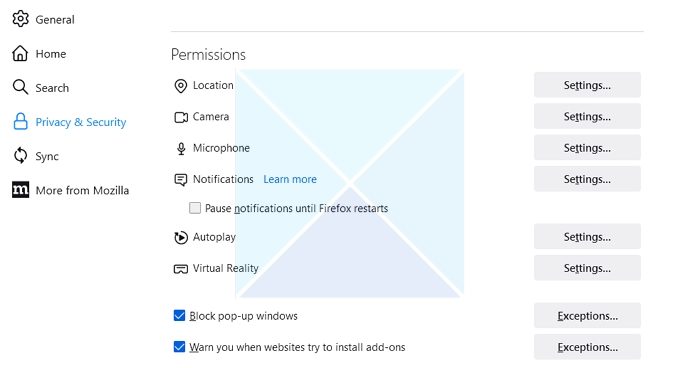Click a webpage, and you will find your browser seeking permissions for sending notifications or accessing your camera and microphone. This can bother us as many do not prefer unwanted suggestions. Also, the action validates sites to push notifications to the browser even if the site in question is not open. Mozilla Firefox, Google Chrome, and other popular browser feature this policy, but if you do not like it, here’s how to block them.

Make Firefox block Notifications, Microphone, and Camera requests
There are two ways to block any notification that is prompted by the website in Firefox:
- Using Firefox Configuration
- Using Firefox Privacy UI
Make sure to configure it properly and for each website. The best way to do it is on a per website basis.

1] Using Firefox Configuration
Quite a few users do not require notifications from websites to stay updated and, as such not use services that require access to a computer’s camera or microphone. Use about: config to modify a preference in the browser.
Open the setting and set dom.webnotifications.enabled to false.

Similarly, to disable the webcam or microphone in Firefox set the following configuration:
- media.navigator.enabled to false
- media.peerconnection.enabled to false
- geo.enabled to disable location prompts
Once done, restart the browser, visit the website which asks for these permissions, and check if Firefox can block the notifications.
2] Using Firefox Privacy UI
Also, if you are using the latest version of the Firefox browser, you can block notification, microphone, camera, and location requests via the browser UI.
You can open the Privacy section by typing about:preferences#privacy in the browser’s address bar and scrolling down to the “Permissions” section. Or you can go to Settings > Privacy & Security and scroll to the Permissions section.

Press the ‘Settings’ button of Location, Camera, Microphone, or Notifications and check the “Block new requests” box under the permissions box displayed.
Finally, click Save changes.
The action, when confirmed, will configure the browser to block prompts that the website might display otherwise. Other websites will continue to function as earlier.
While this does not appear to be a problem for a single website, it disturbs a user if multiple sites implement the same policy. In such a case, the user receives more prompts to allow notifications, which can be annoying. Most of them would prefer notifications from select sites only.
Which browser is most private?
If you are seriously concerned about privacy, you must go beyond Edge, Chrome, and Firefox. Browsers such as Brave, Vivaldi, and Tor are some of the best privacy-focused browsers you can customize further hide your online habits and make your digital experience safer.
Are private browsers private?
If you browse in incognito or private mode, your ISP, school, or employer will still be able to track where you’ve been online. It is pretty much impossible to hide your browsing activity from your ISP.
Leave a Reply